| Selo | Examicus Publishing |
|---|---|
| Edição | 0 |
| Idioma | Inglês |
| Autores | Oliver Steinhof |
| Acabamento | Capa Comum |
| Quantidade de Páginas | 84 |
| Origem | Literatura Estrangeira |
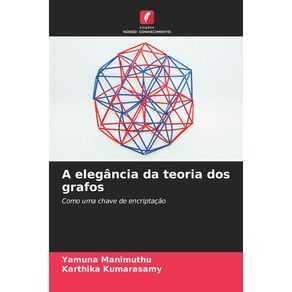 A elegância da teoria dos grafos
A elegância da teoria dos grafos
KS OmniScriptum Publishing
R$ 762,67 ou até 3x sem juros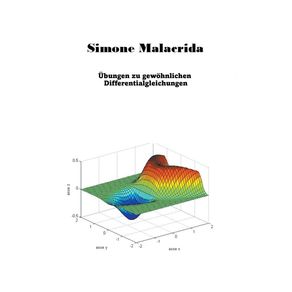 Übungen zu gewöhnlichen Differentialgleichungen
Übungen zu gewöhnlichen Differentialgleichungen
Draft2Digital
R$ 75,62 à vista Time Series Analysis for the State-Space Model with R/Stan
Time Series Analysis for the State-Space Model with R/Stan
Springer Nature B.V.
R$ 337,49 ou até 3x sem juros Sequential Monte Carlo Methods in Practice
Sequential Monte Carlo Methods in Practice
Springer Nature B.V.
R$ 350,36 ou até 3x sem juros Larithmetiqve de Simon Stevin de Brvges
Larithmetiqve de Simon Stevin de Brvges
Legare Street Press
R$ 319,15 ou até 3x sem juros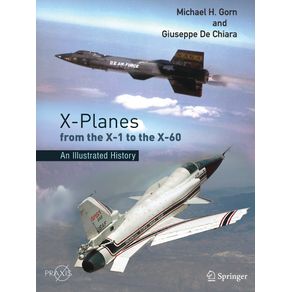 X-Planes from the X-1 to the X-60
X-Planes from the X-1 to the X-60
Springer Nature B.V.
R$ 205,80 ou até 3x sem juros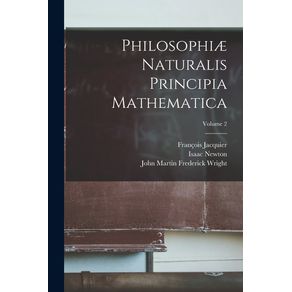 Philosophiæ Naturalis Principia Mathematica; Volume 2
Philosophiæ Naturalis Principia Mathematica; Volume 2
Legare Street Press
R$ 181,57 ou até 3x sem juros Probability, Statistics and Simulation
Probability, Statistics and Simulation
Springer Nature B.V.
R$ 352,41 ou até 3x sem juros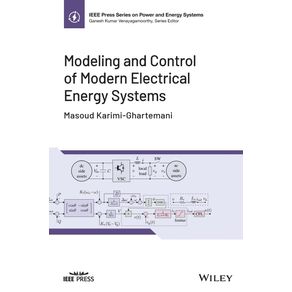 Modeling and Control of Modern Electrical Energy Systems
Modeling and Control of Modern Electrical Energy Systems
John Wiley & Sons
R$ 753,80 ou até 3x sem juros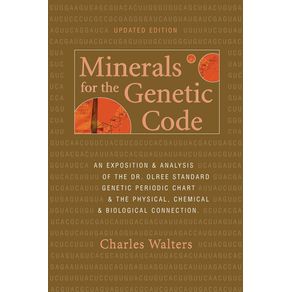 Minerals For the Genetic Code
Minerals For the Genetic Code
Acres U.S.A., Inc.
R$ 146,60 ou até 2x sem juros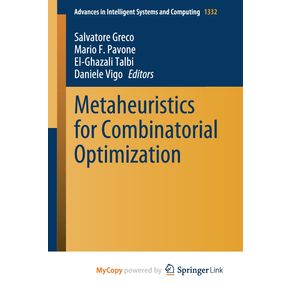 Metaheuristics for Combinatorial Optimization
Metaheuristics for Combinatorial Optimization
Springer Nature B.V.
R$ 329,06 ou até 3x sem juros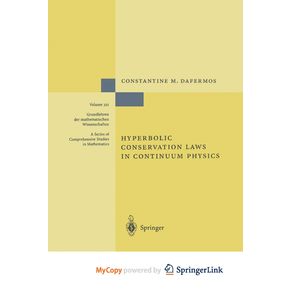 Hyperbolic Conservation Laws in Continuum Physics
Hyperbolic Conservation Laws in Continuum Physics
Springer Nature B.V.
R$ 342,61 ou até 3x sem juros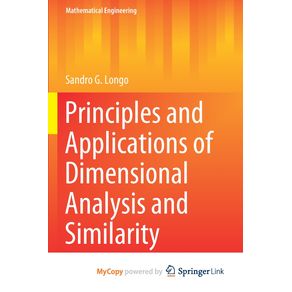 Principles and Applications of Dimensional Analysis and Similarity
Principles and Applications of Dimensional Analysis and Similarity
Springer Nature B.V.
R$ 342,45 ou até 3x sem juros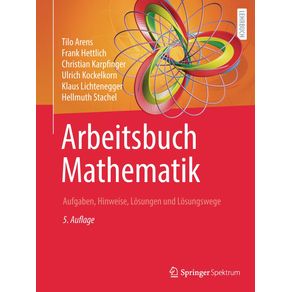 Arbeitsbuch Mathematik
Arbeitsbuch Mathematik
Springer Nature B.V.
R$ 363,67 ou até 3x sem juros Electric Power Plant Engineering
Electric Power Plant Engineering
Repro India Limited
R$ 300,65 ou até 3x sem juros A elegância da teoria dos grafos
A elegância da teoria dos grafos
KS OmniScriptum Publishing
R$ 762,67 ou até 3x sem juros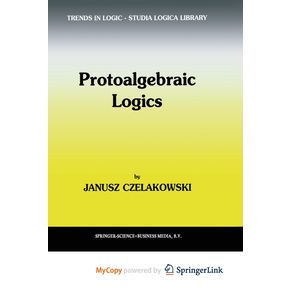 Protoalgebraic Logics
Protoalgebraic Logics
Springer Nature B.V.
R$ 342,84 ou até 3x sem juros North American Agroforestry, Third Edition
North American Agroforestry, Third Edition
John Wiley & Sons
R$ 934,79 ou até 3x sem juros Sequential Monte Carlo Methods in Practice
Sequential Monte Carlo Methods in Practice
Springer Nature B.V.
R$ 350,36 ou até 3x sem juros Larithmetiqve de Simon Stevin de Brvges
Larithmetiqve de Simon Stevin de Brvges
Legare Street Press
R$ 319,15 ou até 3x sem juros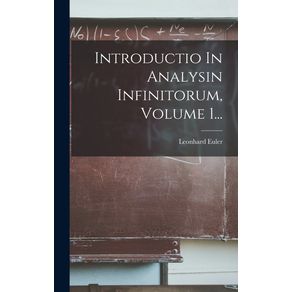 Introductio In Analysin Infinitorum, Volume 1...
Introductio In Analysin Infinitorum, Volume 1...
Legare Street Press
R$ 242,59 ou até 3x sem juros Philosophiæ Naturalis Principia Mathematica; Volume 2
Philosophiæ Naturalis Principia Mathematica; Volume 2
Legare Street Press
R$ 181,57 ou até 3x sem juros Hungarian Mathematical Olympiad (1964-1997)
Hungarian Mathematical Olympiad (1964-1997)
World Scientific Publishing Co Pte Ltd
R$ 285,60 ou até 3x sem juros Modeling and Control of Modern Electrical Energy Systems
Modeling and Control of Modern Electrical Energy Systems
John Wiley & Sons
R$ 753,80 ou até 3x sem juros Minerals For the Genetic Code
Minerals For the Genetic Code
Acres U.S.A., Inc.
R$ 146,60 ou até 2x sem juros Metaheuristics for Combinatorial Optimization
Metaheuristics for Combinatorial Optimization
Springer Nature B.V.
R$ 329,06 ou até 3x sem juros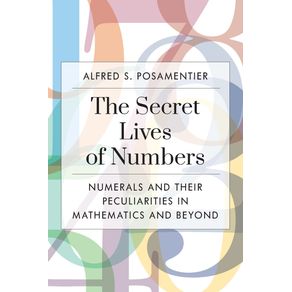 The Secret Lives of Numbers
The Secret Lives of Numbers
Rowman & Littlefield Publishing Group Inc
R$ 163,08 ou até 3x sem juros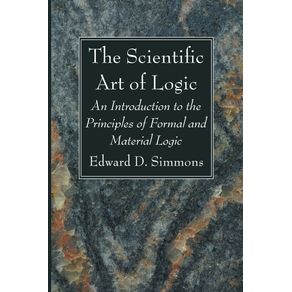 The Scientific Art of Logic
The Scientific Art of Logic
Wipf and Stock Publishers
R$ 205,81 ou até 3x sem juros Mathematician with the Soul of a Poet
Mathematician with the Soul of a Poet
Bohannon Hall Press
R$ 182,43 ou até 3x sem juros Introduction to Linear and Matrix Algebra
Introduction to Linear and Matrix Algebra
Springer Nature B.V.
R$ 569,09 ou até 3x sem juros Algoritmos Numéricos
Algoritmos Numéricos
Um Livro
R$ 146,90 ou até 2x sem juros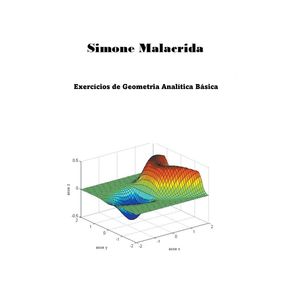 Exercícios de Geometria Analítica Básica
Exercícios de Geometria Analítica Básica
Draft2Digital
R$ 60,08 à vista North American Agroforestry, Third Edition
North American Agroforestry, Third Edition
John Wiley & Sons
R$ 934,79 ou até 3x sem juros Old Clocks And Watches And Their Makers
Old Clocks And Watches And Their Makers
Legare Street Press
R$ 219,91 ou até 3x sem juros Robust and Adaptive Control
Robust and Adaptive Control
Springer Nature B.V.
R$ 343,13 ou até 3x sem juros Philosophiæ Naturalis Principia Mathematica; Volume 2
Philosophiæ Naturalis Principia Mathematica; Volume 2
Legare Street Press
R$ 181,57 ou até 3x sem juros Modeling and Control of Modern Electrical Energy Systems
Modeling and Control of Modern Electrical Energy Systems
John Wiley & Sons
R$ 753,80 ou até 3x sem juros Metaheuristics for Combinatorial Optimization
Metaheuristics for Combinatorial Optimization
Springer Nature B.V.
R$ 329,06 ou até 3x sem juros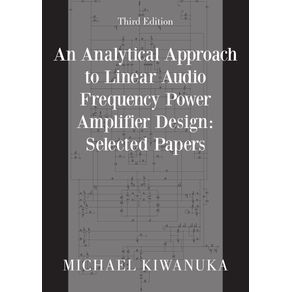 An Analytical Approach to Linear Audio Frequency Power Amplifier Design
An Analytical Approach to Linear Audio Frequency Power Amplifier Design
New Generation Publishing Ltd
R$ 379,76 ou até 3x sem juros The Secret Lives of Numbers
The Secret Lives of Numbers
Rowman & Littlefield Publishing Group Inc
R$ 163,08 ou até 3x sem juros Arbeitsbuch Mathematik
Arbeitsbuch Mathematik
Springer Nature B.V.
R$ 363,67 ou até 3x sem juros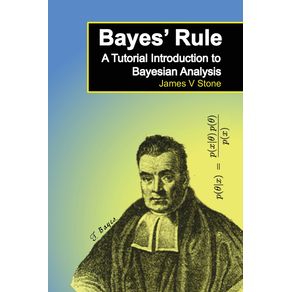 Bayes Rule
Bayes Rule
Sebtel Press - NH
R$ 137,23 ou até 2x sem juros The Scientific Art of Logic
The Scientific Art of Logic
Wipf and Stock Publishers
R$ 205,81 ou até 3x sem juros Mathematician with the Soul of a Poet
Mathematician with the Soul of a Poet
Bohannon Hall Press
R$ 182,43 ou até 3x sem juros Introduction to Linear and Matrix Algebra
Introduction to Linear and Matrix Algebra
Springer Nature B.V.
R$ 569,09 ou até 3x sem juros